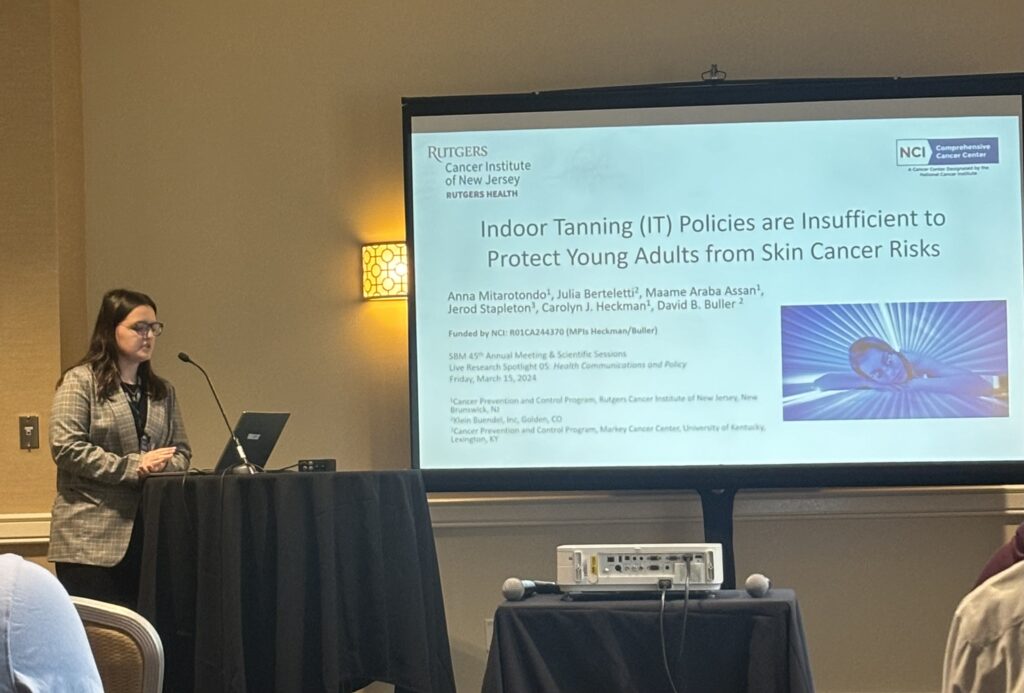Indoor Tanning Policies Are Insufficient to Protect Young Adults
Ms. Anna Mitarotondo, a Research Program Manager from Rutgers University, gave a Research Spotlight presentation on the Indoor Tanning Policy research project at the 45th Annual Sessions and Meeting of the Society of Behavioral Medicine in Philadelphia, PA, March 13-16, 2024. Dr. Carolyn Heckman from Rutgers and Dr. David Buller from Klein Buendel are the project’s Multiple Principal Investigators.

Five million Americans are treated for skin cancer annually with the incidence of melanoma tripling in the last 40 years. Even a single session of indoor tanning is a well-established cause of melanoma especially at younger ages. Indoor tanning is also associated with sunburn, another major risk factor. In addition to FDA safety regulations, 46 states restrict minor indoor tanning access. More stringent laws (such as age bans vs. parental consent or no law) have been associated with less youth indoor tanning. However, enforcement and compliance are essential for successful law implementation. This study investigates regulation stringency, behavior, facility compliance, and sunburns.
The research team conducted an online, nationally representative survey of 1000 individuals aged 18-29 who indoor tanned in the last three years. 82% identified as female, and 74% as white, non-Hispanic. A majority (89%) indoor tanned multiple times in the past three years. Participants reported being most likely to tan in indoor tanning salons, gyms, and beauty salons. They also reported indoor tanning in homes, spas, and apartment complexes, with participants indoor tanning in more types of facilities after age 18. Despite FDA recommendations, participants reported that only 16% of facilities prohibited daily or unlimited tanning. Nearly half (48%) of participants were not informed of time limits when indoor tanning. Half (50%) reported that over half of the time, they were able to avoid indoor tanning facility rules. Nearly two-thirds (61%) of participants reported burning from an indoor tanning device in the past three years, with 15% reporting a burn from their most recent session. Of participants who reported indoor tanning as minors, 61% reported burns and 30% reported getting medical attention.
This is the first study to show rates of indoor tanning at facilities other than tanning salons, both before and after age 18, in a representative national sample. Participants reported insufficient facility compliance with, and enforcement of, indoor tanning regulations, which in some cases may have led to severe burns. Analyses are underway to further investigate regulation stringency, enforcement, and compliance by type of facility and state, adjusting for demographic factors and additional key covariates. The goal is to inform future indoor tanning policies at the state and federal level.
This research was supported by a grant to Rutgers from the National Cancer Institute (CA244370; Dr. Carolyn Heckman and Dr. David Buller, Multiple Principal Investigators). Coauthors included and Ms. Maame Araba Assan from Rutgers University, Dr. Jerod Stapleton from the University of Kentucky, and Ms. Julia Berteletti from Klein Buendel.





